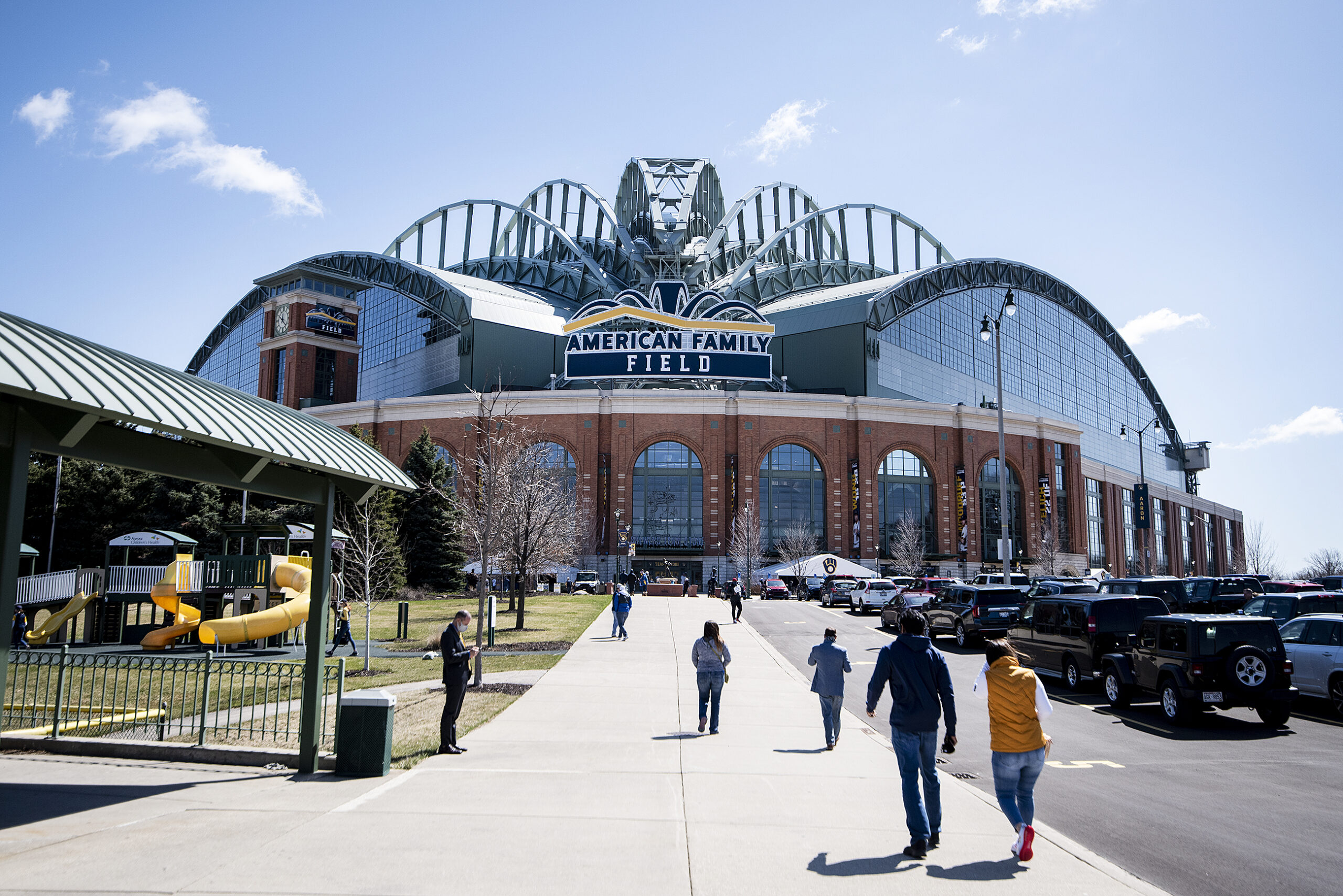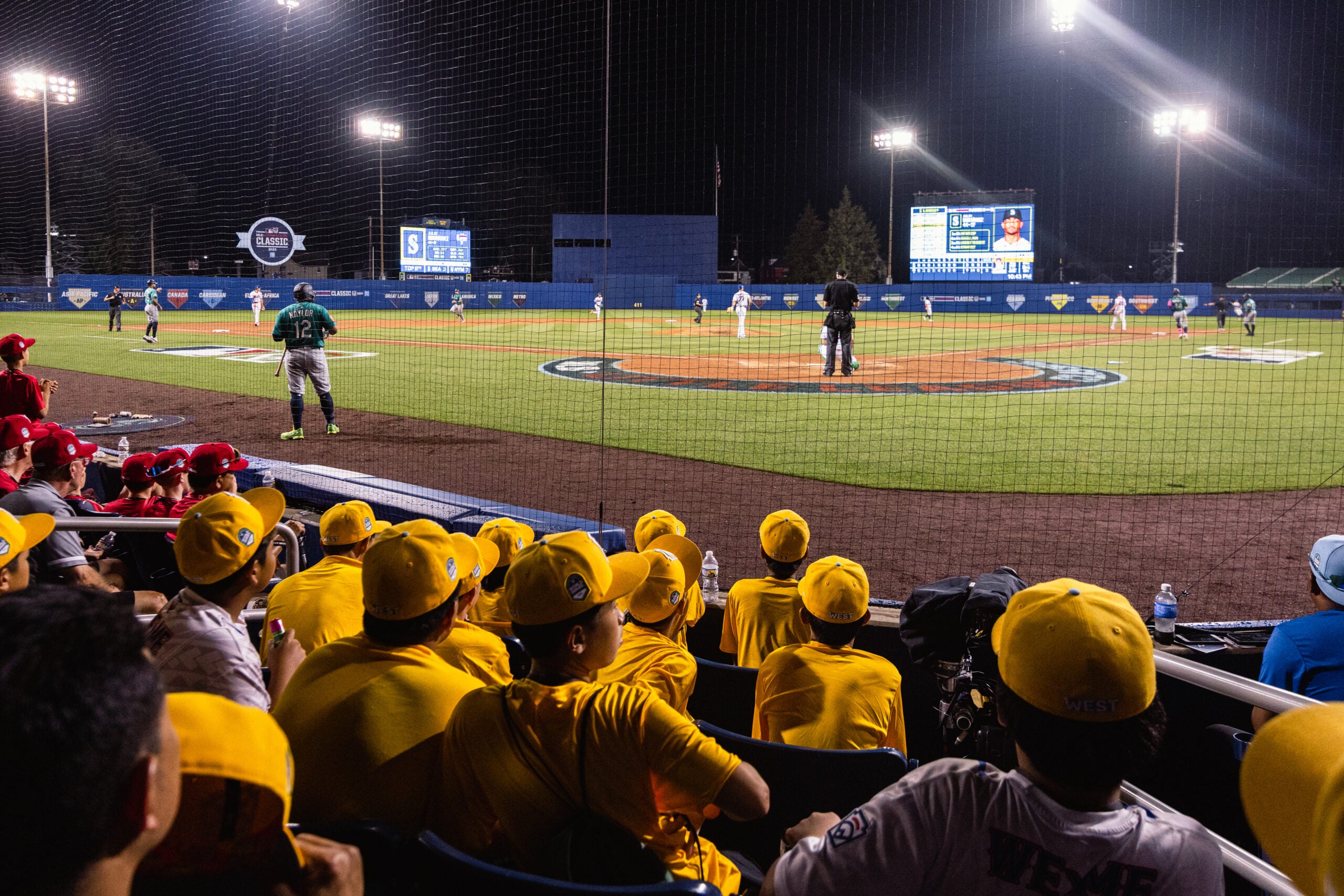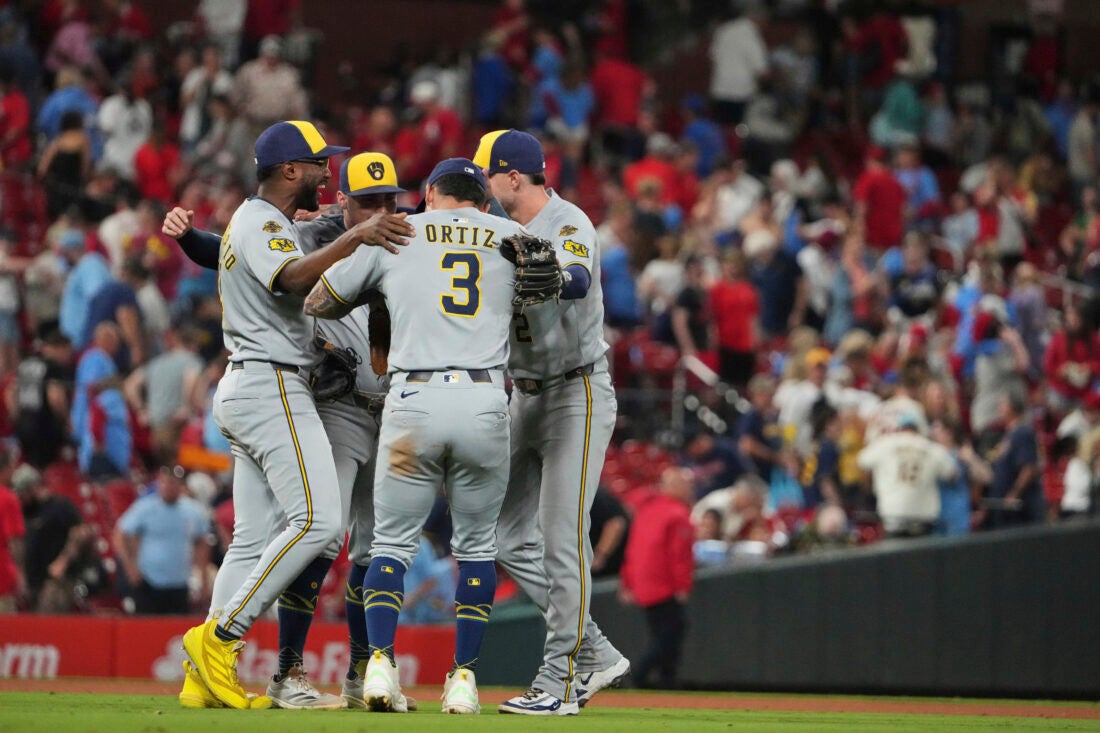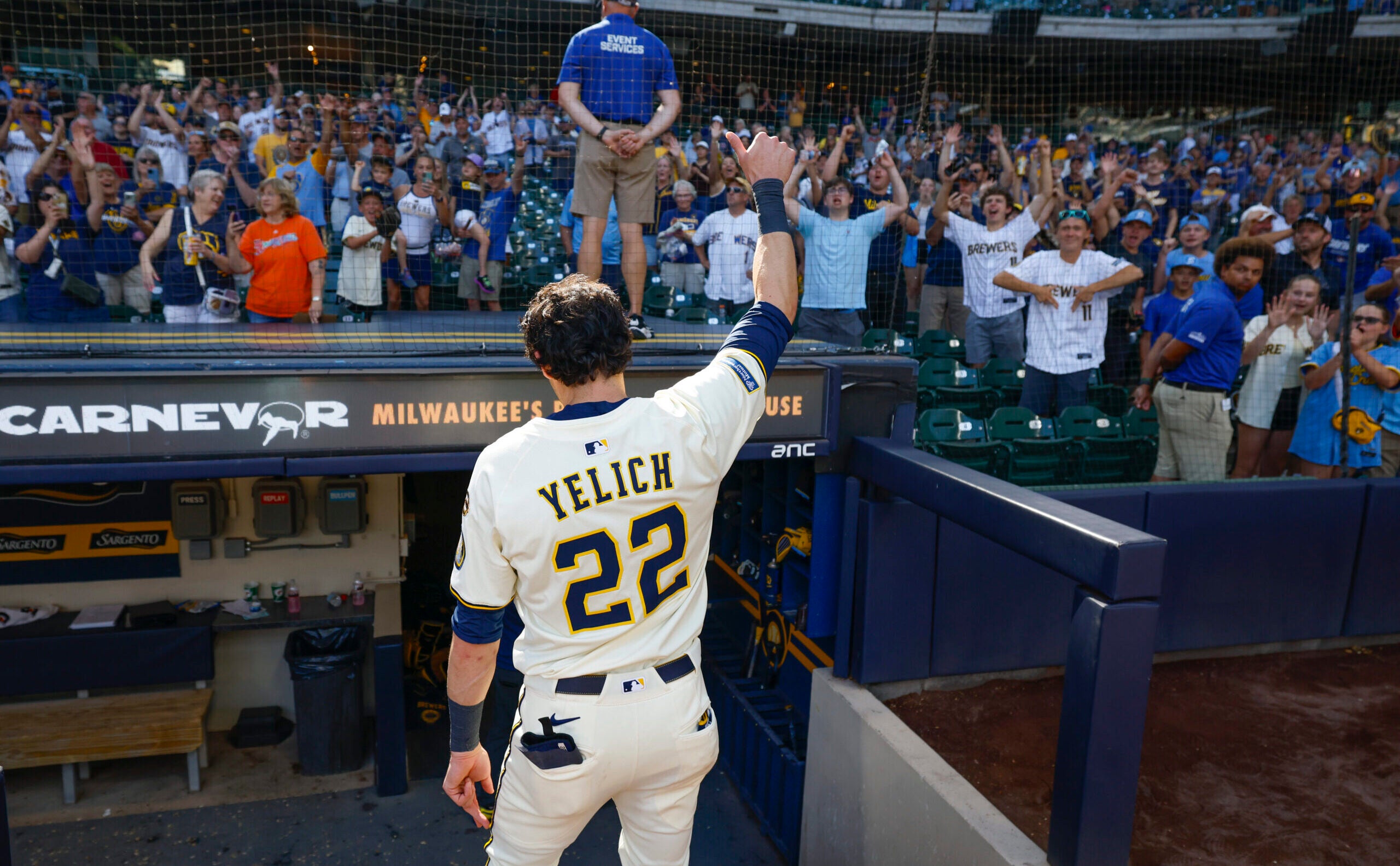Gov. Tony Evers will propose spending $290 million in state money on improvements at the Milwaukee Brewers’ stadium as part of the budget he introduces to the Legislature Wednesday.
The investment in taxpayer funding at American Family Field would come in the form of a one-time payment, paid for by a portion of the state’s projected $7.1 billion dollar budget surplus. As part of the deal, the Brewers would sign a new lease that would keep the team in Milwaukee until 2043.
In a statement announcing the change, Evers framed his proposal as keeping a Wisconsin tradition alive, floating the possibility that without public support, the Brewers might leave Milwaukee.
News with a little more humanity
WPR’s “Wisconsin Today” newsletter keeps you connected to the state you love without feeling overwhelmed. No paywall. No agenda. No corporate filter.
“As governor, and also someone who also happens to be a lifelong Brewers fan, I’m so excited about the historic opportunity we have today to keep Major League Baseball here in Milwaukee for another twenty years,” Evers said. “And to usher in a new generation of Brewers fans in Wisconsin who can grow up rooting for the home team just like I did.”
Rick Schlesinger, the president of business operations for the Milwaukee Brewers, also released a written statement praising the deal.
“The Milwaukee Brewers are committed to working with policymakers on both sides of the aisle to extend the life of American Family Field and help make Major League Baseball possible in Wisconsin for the next generation,” Schlesinger said.
The agreement would need buy-in — and votes — from Republicans who run the Legislature, some of whom were reluctant to support state funding for a new professional sports arena for the Milwaukee Bucks in the not-too-distant past.
In a written statement, Assembly Speaker Robin Vos, R-Rochester, who supported the final Bucks arena deal, blamed Evers for not attempting to collaborate with the Legislature on funding for the Brewers’ stadium.
“Instead, Governor Evers drops this bomb in the budget,” Vos said.
Still, the speaker kept the door open to reaching a funding deal for American Family Field.
“I look forward to working with my colleagues on both sides of the aisle to insure that the Brewers stay in Wisconsin,” Vos said in the statement.
Senate Majority Leader Devin LeMahieu, R-Oostburg, who also voted for the Bucks arena deal, responded to the governor’s plan with a statement that kept the Senate’s options open.
“The Governor’s Brewers proposal, like all of the other things he has leaked before his budget address, is just an idea,” read LeMahieu’s statement. “The legislature will write the budget and we will work with our colleagues throughout the state to explore our options and build a budget that makes sense for everyone in Wisconsin.”
The debate over public funding for the Milwaukee Brewers goes back decades. In 1995, then-Gov. Tommy Thompson convinced fellow Republicans in the Legislature to support a stadium deal that paid for the construction of Miller Park to replace the team’s old home at Milwaukee County Stadium. The Brewers played their first game at the stadium in 2001. Miller Park was renamed American Family Field in 2021.
The 1995 Brewers deal authorized government bonding, or borrowing, to pay for construction of the stadium. Borrowing for the project totaled more than $259 million, according to a 2019 memo from the nonpartisan Legislative Fiscal Bureau. Taxpayers in Milwaukee, Ozaukee, Washington, Waukesha and Racine counties paid an extra 0.1 percent sales tax to retire that debt and the associated interest. Evers signed a law in 2019 requiring the local sales tax to expire in 2020.
Today, the Southeast Wisconsin Professional Baseball Park District is charged with overseeing and maintaining American Family Field. Evers’ offices said that without funding from the state, the district does not have the resources to meet its obligations to maintain the stadium.
Evers’ proposal would make a one-time payment of the district of $290 million, which the governor’s office said would save the state interest costs.
“Without this investment,” warned a press release from the governor’s office, “the Milwaukee Brewers and Major League Baseball could leave Milwaukee as soon as the conclusion of the 2030 season when the current least with American Family Field expires.”
Evers’ office said keeping the Brewers would generate more than $400 million in revenue over the next two decades.
During a public forum last year, Schlesinger mentioned American Family Field’s trademark retractable roof as one of the features most in need of attention at the stadium. Schlesinger stressed that the team did not want to bring back the five-county sales tax.
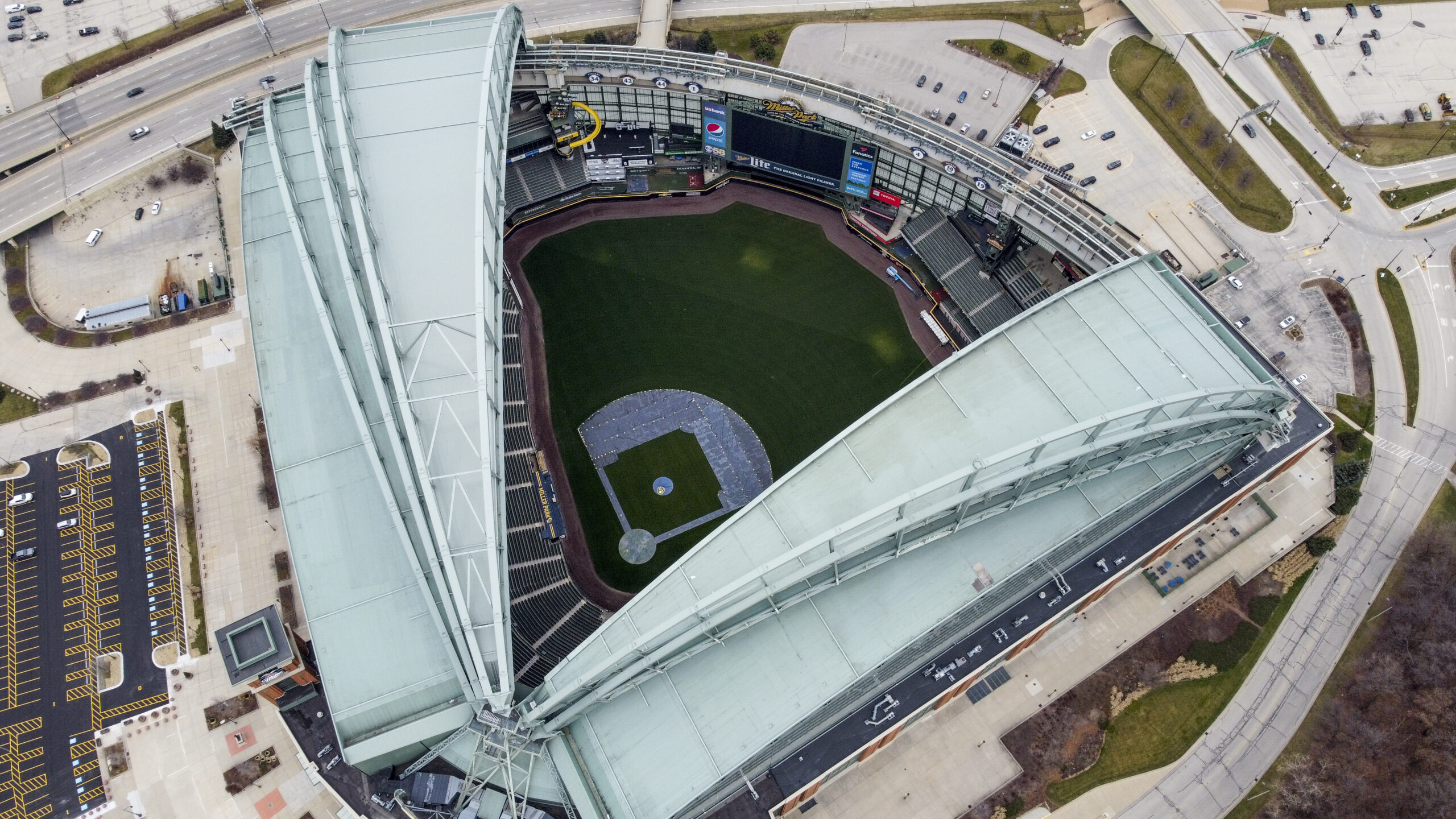
While both Evers and the Brewers organization are onboard with this plan, it could face a tougher sell in the Legislature. The 1995 Brewers deal — while different than the current proposal — passed the state Senate by a single vote and cost one lawmaker, Racine Republican George Petak, his state Senate seat.
In 2015, then-Gov. Scott Walker used his proposed state budget to call for public funding to finance a new arena for the Milwaukee Bucks. Republicans eventually decided to pull the Bucks deal out of the state budget and take it up as a standalone bill, a decision that made it easier for them to pass the plan with Democratic votes.
The Bucks deal was structured as a public-private investment, calling for $250 million in private funds and $250 million from taxpayers. Following negotiations with GOP lawmakers, the state’s of public funding for the arena was $80 million, which was less than Walker initially proposed.
While many lawmakers will remember that debate, others were not yet elected to the Legislature, and have yet to take a vote on public funding to benefit a sports franchise in Wisconsin’s largest city. It’s also unclear how Republicans will view negotiating a stadium deal with Evers, their political adversary.
The last Brewers stadium funding debate is even more distant. Only a handful of lawmakers remain in the Legislature who were serving in 1995.
Wisconsin Public Radio, © Copyright 2025, Board of Regents of the University of Wisconsin System and Wisconsin Educational Communications Board.

